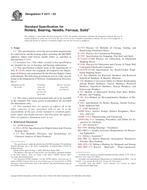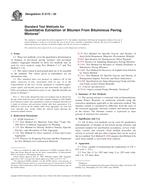1.1 This guide describes ranked set sampling, discusses its relative advantages over simple random sampling, and provides examples of potential applications in environmental sampling.
1.2 Ranked set sampling is useful and cost-effective when there is an auxiliary variable, which can be inexpensively measured relative to the primary variable, and when the auxiliary variable has correlation with the primary variable. The resultant estimation of the mean concentration is unbiased, more precise than simple random sampling, and more representative of the population under a wide variety of conditions.
1.3 This standard does not purport to address all of the safety concerns, if any, associated with its use. It is the responsibility of the user of this standard to establish appropriate safety and health practices and determine the applicability of regulatory limitations prior to use.
Product Details
- Published:
- 08/10/2000
- Number of Pages:
- 6
- File Size:
- 1 file , 84 KB


